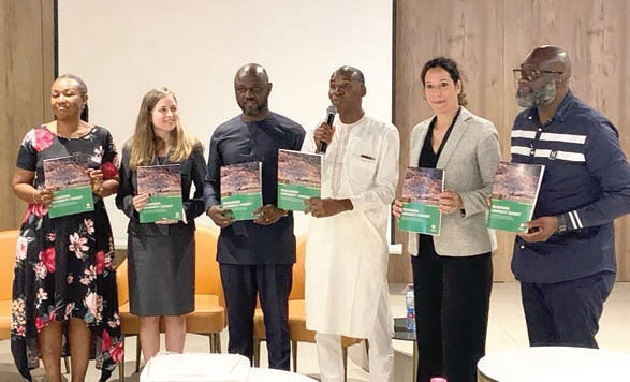
Mining Sector Structural Reform Needed – OXFAM
“Companies also must make sure they have the appropriate operational guidance, internal systems, and resourcing in place to ensure human rights due diligence, accessible and effective grievance mechanisms, gender-responsive FPIC, and protection for human rights defenders,”
A new policy brief by Oxfam, a global organization that fights inequality to end poverty and injustice has called for a structural reform in the mining sector.
According to the report, ‘Recharging Community Consent’ indigenous people must have the power to control if and how mining occurs on their lands.
The policy, first of its kind, examined the publicly available policies of 43 companies engaged in the exploration and production of five minerals used in rechargeable lithium-ion batteries: cobalt, nickel, lithium, graphite, and copper.
It specifically looked at the Free, Prior, and Informed Consent (FPIC) decision-making process that ensures indigenous people have a say in whether and how mining moves forward.
Associate Director OXFAM, Emily Grrenspan speaking at the dissemination workshop in Accra said FPIC is a human right guaranteed under international law.
“It safeguards the protection and realization of their collective autonomies, resilience, and right to self-determination,” she added.
She, however, noted that there are still gaps in the public FPIC commitments of mining companies supplying clean energy technologies, with companies aligning their policies with domestic laws in the countries where they operate.
“More companies need to adopt strong FPIC policies that meet international human rights standards and unequivocally commit them to not proceed with a project if they do not receive community consent,” she quoted from the policy brief.
Explaining further she indicated that clear and unequivocal public commitments to FPIC help communicate expectations with all stakeholders, including governments, which have the primary duty to operationalize key international human rights instruments, including the UN Declaration on the Rights of Indigenous Peoples (UNDRIP).
“Companies also must make sure they have the appropriate operational guidance, internal systems, and resourcing in place to ensure human rights due diligence, accessible and effective grievance mechanisms, gender-responsive FPIC, and protection for human rights defenders,” she added.
Source: Jamila Akweley Okertchiri

